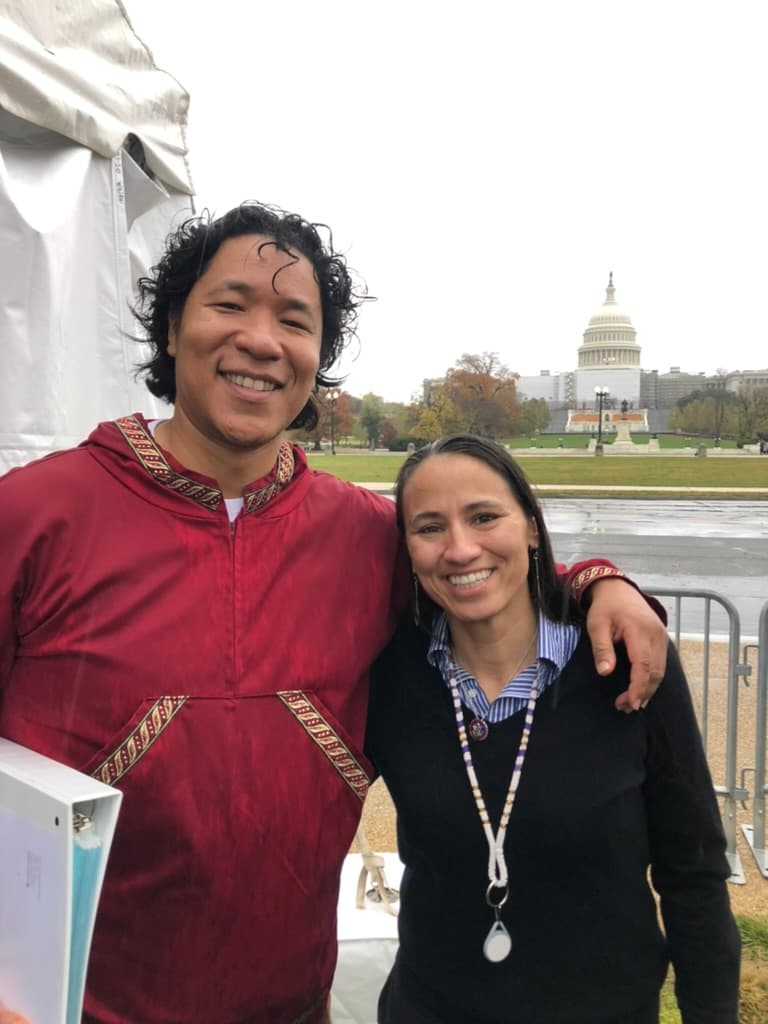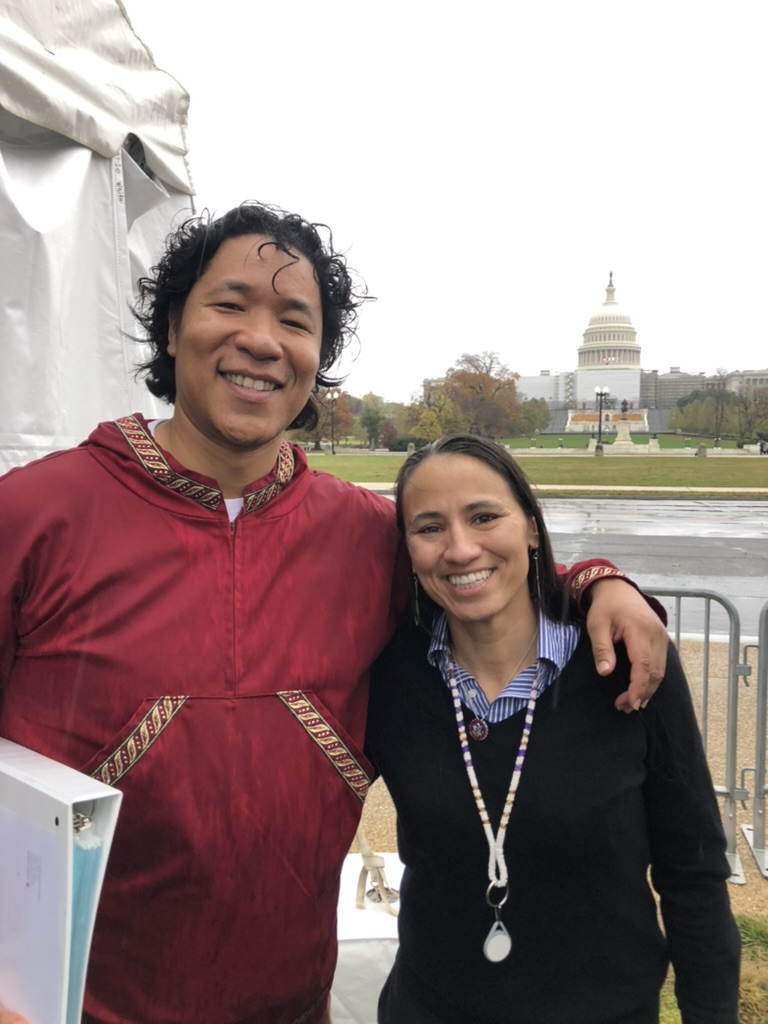

We are committed to working with Tribal and Native leaders, nations, and organizations in shaping the commemoration of the 250th anniversary of this country.
As we gear up for the Semiquincentennial in 2026, the milestone provides opportunities for Native nations to share their stories, and for non-Natives to learn about the land they live on and about Native culture, history, arts, and modern life. It is an opportunity to build understanding between neighbors.
Before the Bicentennial in 1976, Indigenous leaders and Native communities had not been invited to contribute or lead efforts in United States Revolutionary commemorations. During the planning of milestone events, Native communities participated in limited capacity, such as providing entertainment with traditional dances. That trend would change by 1972, as planning for the United States Bicentennial was underway. A college-aged University of Arizona student, Thomasine Troisi (Crow and Pawnee), was appointed as the youngest member of the American Revolution Bicentennial Commission. She would champion Native American, Alaska Native, and Native Hawaiian solidarity in America’s 200th anniversary.
At the time, many Americans knew little about the 10,000+ years of Indigenous culture and history on this land, nor about the unique Nation-to-Nation relationship between the United States government and Tribal and Native nations. At the prodding of Ms. Hill, the University of Arizona and its AmerInd Club co-sponsored a four-day Native community Bicentennial summit in 1973. Over 150 Native leaders from 20 states and 30 Tribes tasked themselves with determining how the Native community would, or would not, participate in the Bicentennial. By 1976, 38 Tribes became official Bicentennial communities.
But even to this day, many non-Natives have vague knowledge of Native Americans’, Native Hawaiians’, and Alaska Natives’ experiences. Many are unaware that there are 574 Federally-recognized and over 60 State-recognized Tribes, that there are Native businesses generating billions of dollars in revenue, and that there are unique challenges that Native communities face in protecting the health and well-being of their people and preserving their culture.

From right: U.S. Representative Sharice Davids (KS) and America250 Senior Manager of Tribal Partnerships Andrei Jacobs (left) stand in front of the Capital before the National Native American Veterans Memorial dedication ceremony on Friday, November 11th. Representative Davids was a featured speaker and was raised by a single mother, who served in the Army for 20 years.
America250’s Tribal Partnership efforts are focused on inviting all 574 Federally-recognized Tribes and the greater Native community to commemorate their unique American experiences, with two primary goals: 1) to facilitate sharing knowledge about the lives and cultures of Alaska Natives, Native Hawaiians, and Native Americans; and, 2) Help catalyze Native living for the next 10,000+ years, creating space to celebrate Elders and youth, and Native values and customs, Tribal government and law, games and leisure, language and arts, and so much more.
Celebrating Native Veterans
This Veterans Day we honored Native Nations and service members as part of our celebrating Tribal living efforts. The National Native American Veterans Memorial was dedicated on November 11th. America250 staff helped marshal the procession and connected with community members from around the country.
Grand Marshals of the procession were Native American Women Warriors.
Kiowa Black Leggings Warrior Society are traditionally known as being experts of horse-mounted armies of the Southern Plains. They have existed for more than 200 years and are located in Oklahoma.
Shiprock High School Marine Corps JROTC brought their delegation from northwest New Mexico. Shiprock is an ancestral home to Diné (Navajo).
Following the 1973 national convening of Native leaders, ARBC Commissioner Thomasine Hill wrote to President Richard Nixon, “The American Indian involvement in the American Revolution Bicentennial Observance is an act of faith and hope that the next 100 years will be more promising than the last 200 years.”
We continue the legacy initiated during the Bicentennial and work directly with these communities to help shape our planning, events, and programming as we chart a roadmap to 2026. We invite all people living on this land to join us on the journey to the Semiquincentennial. Together, we can build a promising future. You can learn more about our efforts with Native Communities and Tribal Partnerships at America250.org/tribal.
Quyana cakneq
Thank you very much